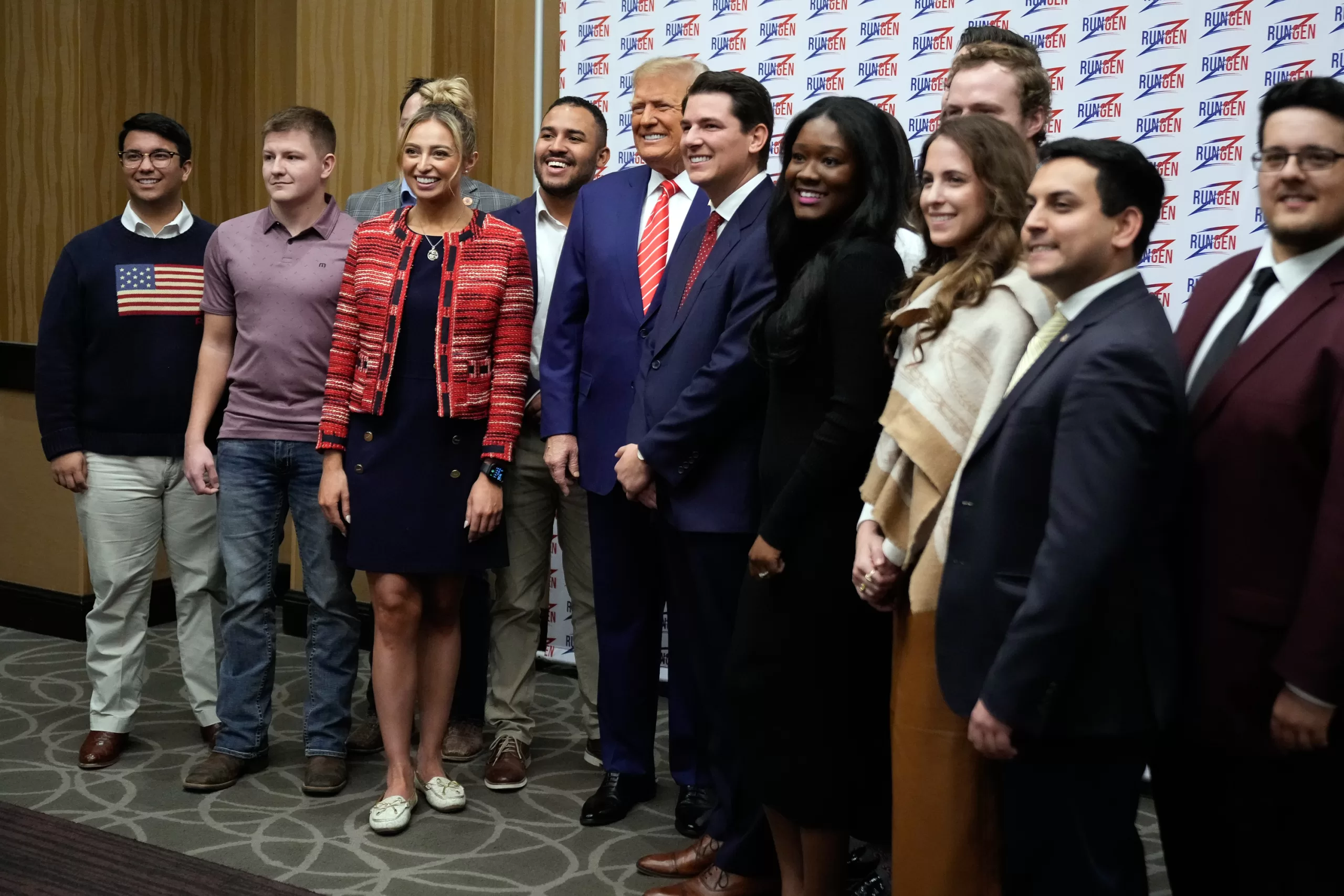
“If the RNC was actually concerned about winning, they wouldn’t attack conservative organizations busy in the field doing hard work of engaging young people,” said Turning Point USA spokesperson Andrew Kolvet. “They would look to partner with us.”
Whether it’s outside organizations or infrastructure to blame, the conference-goers I spoke to in Iowa hadn’t felt the effects of the Republican Party’s efforts. “They ignore and they don’t utilize social media in any kind of a way to make any legitimate connections with young people,” said Nolan Jackett, a 20-year-old electrician from Wisconsin who has run for school board twice. “Young people are not going to go to the party and to events or politicians. They have to go to young people, and they are absolutely failing at doing that by sitting there on their hands doing nothing.”
But despite their misgivings about the party’s outreach efforts, young conservatives at the conference did heap praise on one of the candidates then running for president (other than Trump, who got his fair share of adulation) for connecting with young conservatives: Tech entrepreneur Vivek Ramaswamy came up over and over again as an example of a politician who knows how to speak to Gen Z.
Ramaswamy suspended his campaign after his distant fourth-place finish in Iowa this month, but he left his mark on young Republicans. While there’s not yet a consensus on who young Republicans backed in the caucus — the
National Election Pool’s Entrance Poll showed Florida Gov. Ron DeSantis (who
suspended his campaign on Sunday) leading among young voters, while
AP Vote Cast showed Trump ahead with this demographic — early estimates show Ramaswamy performed better with young caucusgoers than he did with their older counterparts.
Part of his appeal was his embrace of Gen Z conservatives’ favorite mode (digital) and trademark style (meme-ified) of communication. “He’s the only candidate that’s on TikTok, where the youth is, when all the other candidates say, ‘Let’s ban this,’” Sweeney said before his departure from the field. “They’re banning the very thing that is giving kids across the country a voice.”
Ramaswamy’s success isn’t so much about what he says as how and where he says it. With
free drinks and a frat-bro vibe, Ramaswamy capitalized on Gen Z’s cultural zeitgeist. He even teamed up with influencers like Jake Paul to tout his Trumpian, anti-establishment ethos, which resonates with members of a generation
that doesn’t trust the country’s traditional political institutions. Indeed, the young politicos at Run GenZ’s conference who have or want to run for office were skeptical of Republican party infrastructure.
That screw-the-establishment posture was cultivated by Trump, who still sits atop a throne in the hearts and minds of many young conservatives, most of whom have never known and cannot imagine politics without him. That overwhelming influence has afforded him some slack among Gen Z, and while they’d prefer to see him up his social media game (court-mandated gag orders notwithstanding), they nonetheless have grown to crave his shameless, humoristic style. So much so that, even though Trump isn’t TikToking, he’s inspired an
entire ecosystem of conservative meme-makers to do his digital dirty work for him.
“Trump uses meme culture in a way that no other politician does,” said Jackett, the only young Republican at the conference I saw sporting a MAGA hat.
Even Trump skeptics can’t resist his gravitational pull entirely. North Dakota state Rep. Claire Cory, 25, is wary of the former president’s notorious reputation. “He’s controversial. … The mean tweets and stuff like that,” she said. But he’s still the man who piqued her interest in politics, and if he’s on the ballot against Biden in November, she said, he can count on her vote. “[Trump] was different. It was exciting,” she said. “He had a momentum about him that was attractive. He had the MAGA movement, he had huge rallies, everything like that. And that’s kind of where I was like, ‘I want to be a Republican.’”
